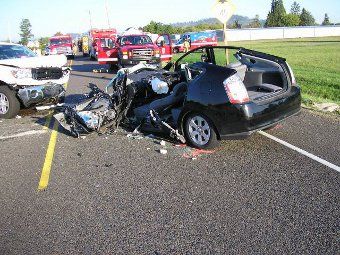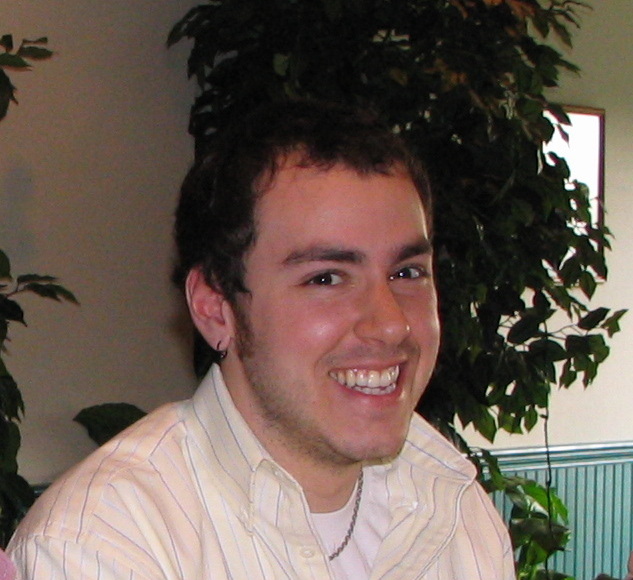Opinion Article
Suppose you’re a homeowner who has watched your neighborhood deteriorate since drug dealers moved in. The drug traffic has disturbed your peace, destroyed the lives of friends, and threatened your security.
Then suppose you turn on the TV and see a commercial for a product considered socially responsible: a low water-use toilet. The manufacturer, worried that customers think its flushing power ineffectual, has devised a new “humorous” ad. It depicts a panicked drug dealer reacting to police pounding on his door by running to the bathroom with a bag of cocaine. The camera cuts to police ramming the entry, then back to the dealer, calmly munching corn chips. The ad’s caption: “No Matter the Rush, It’s Gone in One Flush!”
No advertising company would propose such an ad, and no manufacturer would buy it. It would outrage the law-abiding public and law enforcement at all levels.
Yet for months Toyota has run a series of ads that strike both police and the family members of one group of crime victims as just this outrageous. The first spot aired during the Super Bowl.
A group of bank robbers, finding their getaway car has been towed, steal a Prius. They elude police, driving for miles at high speeds. Meanwhile, citizens tweet the thieves’ exploits and hang out banners to cheer them on as they speed by. The chase goes on endlessly, without even near-miss collisions, as if pursuits always unrolled in the sedate manner of the slow-motion chase of O. J. Simpson on highways that had been cleared of most other traffic.
In real life, police pursuits can quickly turn deadly. An FBI study found that about half of all pursuits last less than two minutes, and 70% end within six minutes — usually in a crash. Sometimes the fleeing driver slams into a wall, injuring or killing only himself. But too often he slams into another, innocent driver.
Records kept by the National Highway Traffic Safety Administration (NHTSA) since 1979 show that about one person a day dies in a pursuit-related crash and that over one-third of those killed are innocent bystanders. The real number of pursuit-related deaths is probably higher.
USA Today investigators who tabulated media-reported pursuits found that the NHTSA undercounted chase-related deaths in 2013 by at least 31%. One reason: accident report forms often don’t ask whether a pursuit preceded a crash.
Researchers for the International Association of Chiefs of Police reported in 2008 that over 91% of vehicular pursuits are triggered by non-violent crimes, and that in over 42% of cases, police pursue for minor traffic violations.
Patrol officers see small infractions as clues to larger crimes — and a suspect’s refusal to stop seems an admission of guilt. It is true that police frequently discover, after the crash, that a suspect was driving a stolen vehicle. But by then the stolen property is irrecoverable.
You can replace a ruined car, but you cannot replace the life of an innocent bystander victim. That’s why the national nonprofit PursuitSAFETY urges law enforcement to pursue only violent felony suspects. It also urges law enforcement to train officers to use safe practices in situations that often trigger pursuits. Another organization, Pursuit For Change, pushes these reforms while promoting new technologies that could help officers apprehend suspects without the dangerous chase.
Both groups have asked Toyota to pull the offensive Prius ads. Toyota has responded with tone-deaf excuses.
Toyota Operations Supervisor Nicole Redd’s response to a letter from PursuitSAFETY volunteer Patti DeAngelis (whose daughter died last September due to a pursuit in San Joaquin County, California) is typical. “We are sorry you did not enjoy our . . . commercial. Our intention was to focus on the typical misconceptions about hybrids . . . in a fun and humorous way.” In other words, “That was a joke! Didn’t you get it?”
The American public doesn’t get it. We regard vehicular flight and pursuit with too much fascination and too little alarm. We thrill to movie depictions of impossible chases. The camera sweeps past fiery crashes and crumpled vehicles, never showing us the human cost. Reckless scofflaws conclude that you can flee police and get away, while the rest of us don’t suspect we could be victims — until it happens to someone we love.
Free-lance writer and editor Ellen Deitz Tucker began advocating reforms to police pursuit policy after her sister and a friend were killed by a fleeing driver in Belmont, NC in 2012.


